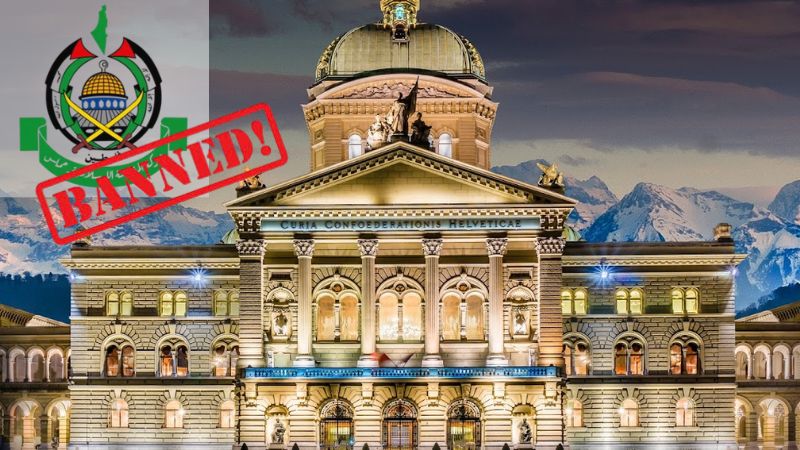In an unprecedented decision, the Swiss Parliament has voted to pass a bill banning Hamas, a move that marks a significant deviation from the country’s long-held diplomatic approach of keeping an open dialogue with all warring parties involved in the Middle East Crisis. On December 11, the House of Representatives voted almost unanimously, 168 in favour and six against, to implement a five-year ban on the Palestinian organization.
Historically, Switzerland boasted a diplomatic policy that could be summarized by the motto “We talk to everyone.” This policy consisted of holding low-key but intense dialogues with groups that other countries might avoid. Until recently, the Swiss government defended its dealings with Hamas by arguing that such interaction was intended to prevent violent extremism and promote adherence to international humanitarian law.
The October 7 massacre in Israel, which killed 1,200 people brutally and abducted 250 others, turned out to be a turning point. Described by some people as the worst pogrom against Jews since the Holocaust, this violence shook off Switzerland’s previous diplomatic stand. Hamas then declared that such attacks would continue until Israel was destroyed and did not leave much room for continued dialogue.
Unlike its approach of just adopting UN sanctions against terrorist organizations, Switzerland has introduced a special law to ban Hamas. It is considered exceptional by political figures, who say that they do not want an automatic mechanism for banning an organization.
It hasn’t come without internal debate. Swiss diplomats fear it might open the country, known as a neutral player in world politics for generations, to pressure from other nations that would have their adversarial groups banned, too. The European Union has had Hamas on its list of terrorists since 2003 and has extended its sanctions after the October 7 attack, while countries such as the United States, United Kingdom, and Israel had long branded Hamas as a terrorist organization.
Proponents of the ban, such as Alfred Heer, president of the Pro-Israel Parliamentary Group, argue that the action is long overdue. Heer criticized the delay, stating that Hamas’s connections with figures like the fallen Syrian dictator Assad and Iran’s destabilizing regional activities should have prompted earlier action.
The ban, according to the security politicians, is not only symbolic but real. One of the authors of the motion, Marianne Binder-Reller, stressed that organizations causing such damage must be “dried out.” It aims to facilitate the prevention, prosecution, and interruption of financial flows supporting the organization.
According to some politicians, such as David Zuberbühler, the ban is an indispensable component in preserving Switzerland’s credibility as a peace mediator. He claimed that true mediation requires standing firmly against anti-Semitism, terrorism, and the glorification of violence.
Although Hamas is now proscribed, the Swiss parliament is still debating a potential ban on Hezbollah. The government has been hesitant to extend the proscription, with Justice Minister Beat Jans warning not to create a broad mechanism for proscribing organizations.
The ban is going to be in place for the first five-year period, with the parliament holding the right to extend. To date, only Al-Qaeda and the Islamic State have been banned in Switzerland. This act marks a new face for Swiss diplomacy, the country coming out more openly in denouncing terrorist operations.
